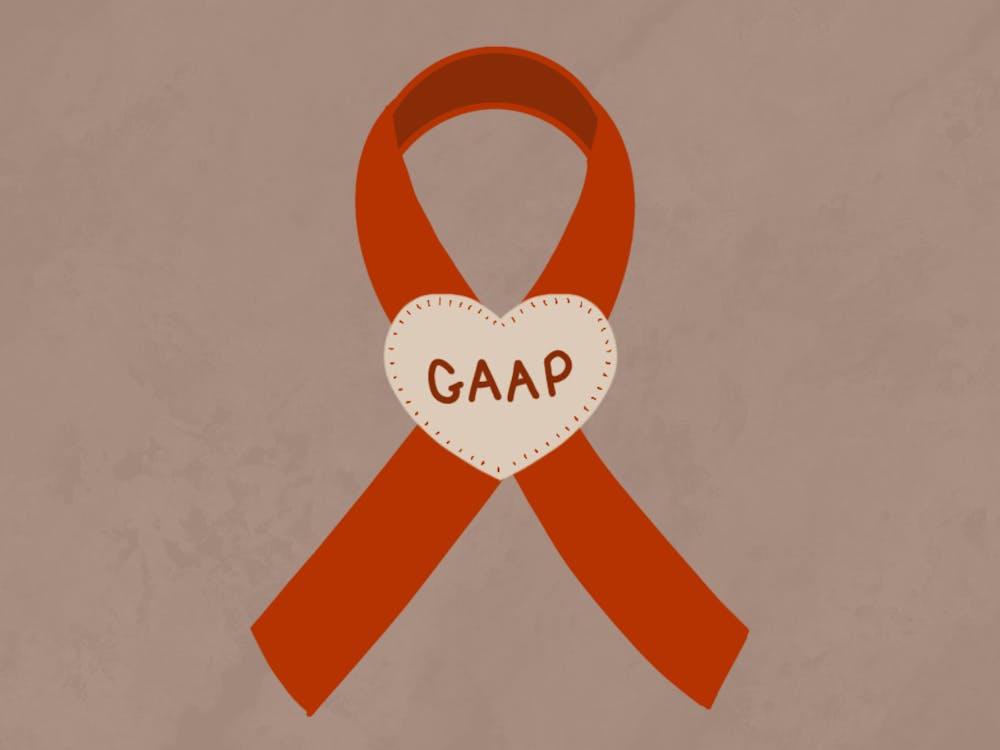When 20-year-old UF anthropology major Fiona Garber and a group of their peers were tasked with a research project as a part of UF’s Alexander Grass Scholars Program, they chose to delve into the impact of the condition and the effect of the AIDS pandemic on a local scale.
“Some of us knew a lot about the AIDS epidemic and some of us knew very little,” Garber said. “We all wanted to get a more personal history of Gainesville Pride and the organizations here.”
Garber and their group researched the history of the Gainesville Area AIDS Project, a space designed in 1993 to address shortcomings in existing local programs for people living with the condition.
When the AIDS pandemic arrived in Gainesville in the late 1980s, the United States was no stranger to stigmatization surrounding the condition.
Early AIDS patients were primarily gay men. Less than one month after its first recorded case, the term “gay cancer” became the public’s way of referring to the condition.
Later, before it was given the name AIDS, it was referred to as “Gay-Related Immune Deficiency.”
Through the Gainesville Area AIDS Project, Garber said the city was able to support those diagnosed with HIV and AIDS early on.
“As we learned more, we realized how important GAAP was and how little people knew about the group nowadays,” Garber said.
GAAP was founded by Randall Buel, who was diagnosed with HIV in the early 1990s. The virus developed into AIDS, and Buel died 1997.
Today, the organization operates under the Pride Community Center of North Central Florida following its inability to keep up with operations alone in the 2010s.
One of GAAP’s major historic functions was the creation of AIDS memorial quilts for Gainesville residents who died of the condition. The practice of memorializing AIDS victims through quilts began in the 1980s in San Francisco.
Garber praised the group for its community-based practices compared to other groups at the time.
“GAAP had a huge focus on making personal connections and making safe spaces for people with HIV/AIDS,” they said. “It was different than any of the other AIDS groups at the times because it provided more hands-on help through weekly meals and other donations or events.”
Despite nationwide stigma surrounding the AIDS pandemic, GAAP was met with nearly unanimous support in Gainesville.
“We were surprised by how much the community seemed to support them,” Garber said. “Even Greek Life, which otherwise at the time we would have thought to be more close-minded.”
Garber said the variety of welcoming spaces in Gainesville helped destigmatize the condition locally.
“We heard about a pastor who specifically said to his church attendance that all people with AIDS were welcome to the community,” they said. “I think this era was a perfect time for groups like GAAP because people were warming up to the idea that having HIV/AIDS should not be discriminated against.”
Tristan Krammel, a 20-year-old UF English major and project member, said the group excelled at connecting people during a time when connection was less straightforward.
“It connected individuals and shared knowledge in a pre-internet world,” he said. “Members of GAAP would recommend each other doctors, medication and provide general support.”
GAAP would keep its members informed through monthly newsletters, which reported news and recognized its volunteers in a column called “Angels of the Month.”
Garber and Krammel’s research was conducted using Matheson History Museum’s Pride Community Center of North Central Florida Archive.
Collections Coordinator Chloe Richardson said the archive, donated by the Pride Community Center of North Central Florida, holds information about more than the AIDS pandemic.
“Researchers can use the collections in the Pride Community Center of North Central Florida Archive here to learn about issues the local LGBTQ+ community have advocated for over the years, including not just the HIV/AIDS epidemic but also things like marriage equality and anti-discrimination laws,” Richardson said.
Garber’s research was published on a website as a timeline of GAAP’s work.
Contact Ben Nielsen at bnielsen@alligator.org. Follow him on X @benknielsen.
Ben Nielsen is The Alligator’s Multimedia Editor. He formerly worked as The Alligator's videographer, and began working as multimedia editor in January 2024. He specializes in visual storytelling and manages photos, graphics and videos.






